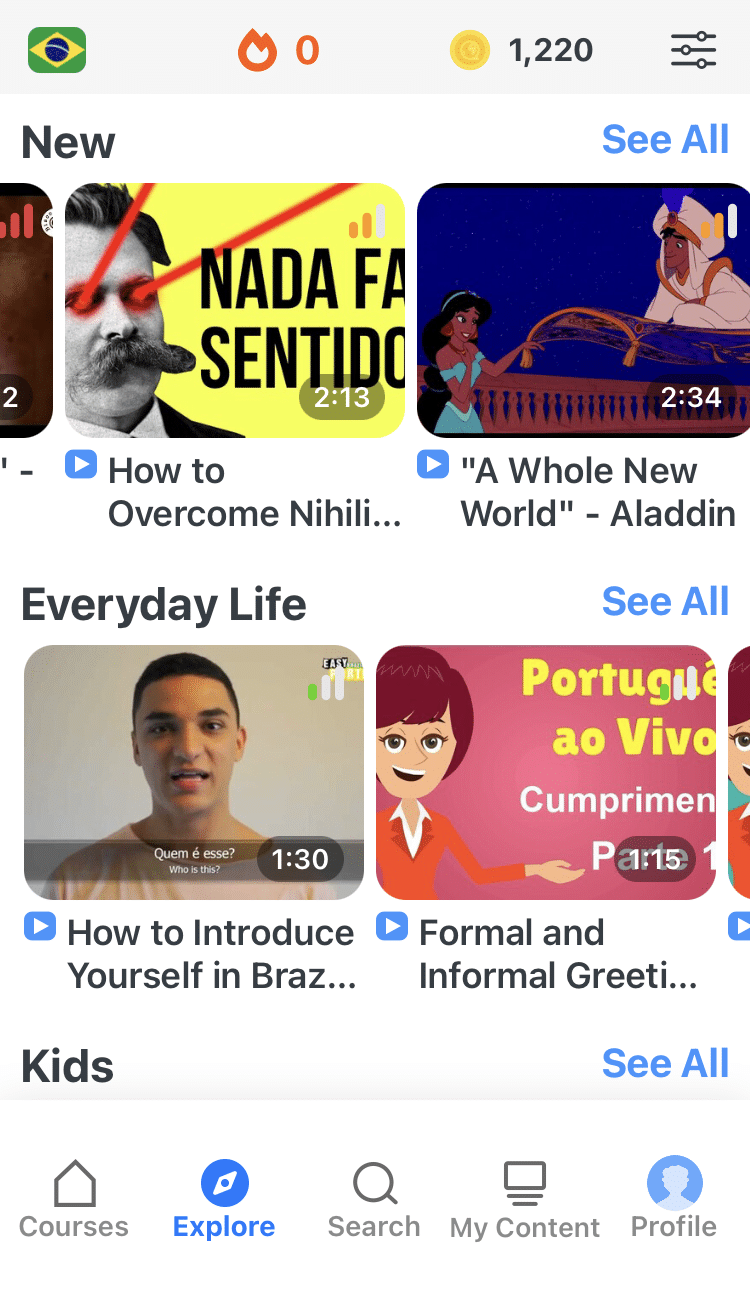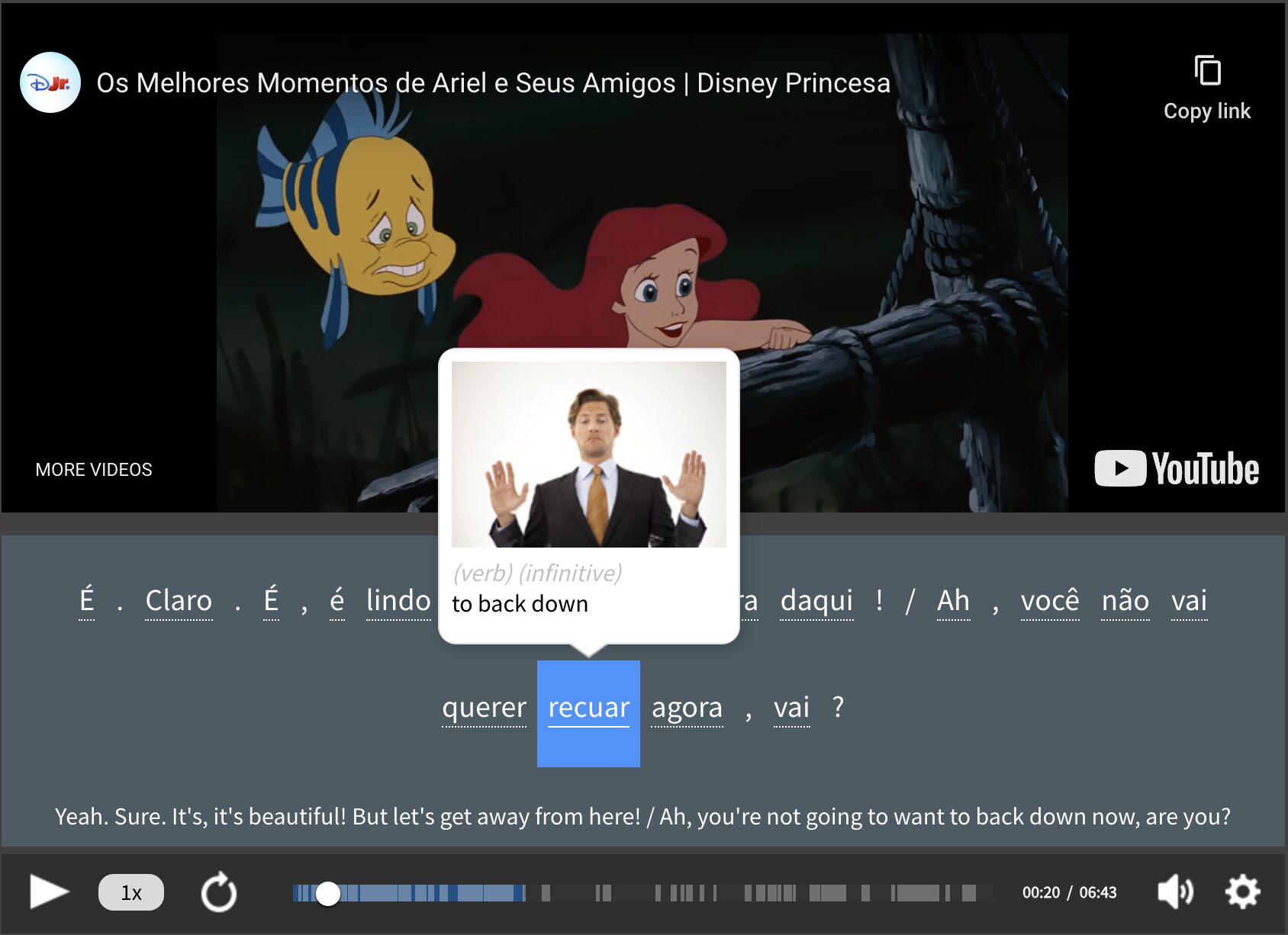Contents
- 1. “Céu Azul” by Charlie Brown Jr.
- 2. “Desabafo” by Marcelo D2
- 3. “A Chapa É Quente” by Emicida feat. Rael
- 4. “Casa (Vem Fazer de Conta)” by Da Weasel
- 5. “Tudo Muda” by Dengaz feat. Matay
- 6. “Dialectos da Ternura” by Da Weasel
- 7. “Fotos Antigas” by Thiaguinho
- 8. “Vem Balançar” by Sambasonics
- 9. “Chiclete com Banana” by Gilberto Gil
- 10. “País Tropical” by Jorge Ben Jor
- 11. “Segura a Nega” by Clube do Balanço
- 12. “Carolina” by Seu Jorge
- 13. “Burguesinha” by Seu Jorge
- 14. “Zumbi” by Jorge Ben Jor
- 15. “Guerreiro” by Curumin
- 16. “Vou Deixar” by Paula Lima
- 17. “O Rock do Rato” by Franco
- 18. “Eduardo e Mônica” by Legião Urbana
- 19. “Metamorfose Ambulante” by Raul Seixas
- 20. “O Homem do Leme” by Xutos & Pontapés
- 21. “Quem é Quem” by Xutos & Pontapés
- 22. “ABC” by David Carreira feat. Boss AC
- 23. “As Coisas” by Valas
- 24. “Seus Planos” by Ivete Sangalo
- 25. “Sozinho” by Caetano Velozo
- 26. “Chega de Saudade” by João Gilberto
- 27. “Uma Casa Portuguesa” by Amália Rodrigues
- 28. “Fado Português” by Amália Rodrigues
- 29. “Lisboa Menina e Moça” by Carlos do Carmo
- 30. “Amar Pelos Dois” by Salvador Sobral
- 31. “Corzinha De Verão” by Deolinda
- 32. “Alentejo És Nossa Terra” by Vitorino
- 33. “Caminhos Turvos” by Dazkarieh
- 34. “A Andorinha da Primavera” by Madredeus
- 35. “Canção Do Mar” by Dulce Pontes
- 36. “Os Vampiros” by José Afonso
- 37. “Que Força É Essa” by Sérgio Godinho
- 38. “Trova do Vento que Passa” by Adriano Correia de Oliveira
- 39. “O Primeiro Dia” by Jorge Palma, Sérgio Godinho
- 40. “A Paz Não Te Cai Bem” by Clã
- 41. “Brasa” by Mundo Segundo & Sam the Kid
- 42. “Dança Este Som” by TT
- 43. “Como Tu” by Bárbara Bandeira
- 44. “Senhora de Si” by Ivo Lucas feat. Carolina Deslandes
- How to Discover Portuguese Songs on Your Own
- 5 Tips to Learn Portuguese with Songs
- And One More Thing...
Learn Portuguese with Songs: 44 Bangers to Add to Your Playlist

Portuguese songs are free tickets to fluency. Not only are they authentic content you can easily access on places like YouTube, but they’re also crisp language lessons lovingly wrapped up in a packet of catchy tunes.
Discover 44 of the best Portuguese songs to increase your vocabulary and experience Brazilian and Portuguese culture from home. Plus, learn a few tips on how to turn these songs into valuable study material and how to find more tunes beyond this curated list.
Download: This blog post is available as a convenient and portable PDF that you can take anywhere. Click here to get a copy. (Download)
1. “Céu Azul” by Charlie Brown Jr.
Genre: Hip-Hop
Charlie Brown Jr. were seasoned veterans in Brazil’s hip-hop scene, kicking off their shining career in 1992.
Unfortunately, their vocalist and founder died in 2013. Since then, the remaining band members decided not to use the band name out of respect for their departed colleague.
“Céu Azul” is very reminiscent of the band’s experimental nature. They liked to mix and match musical styles, particularly hip-hop and funk. This song’s mellow lyrics talk about living life to the fullest and sharing loving memories.
2. “Desabafo” by Marcelo D2
Genre: Hip-Hop
Marcelo D2 is one of Brazil’s best-known rappers, renowned for mixing samba with his hip-hop beats.
“Desabafo” won him a nomination at the Latin Grammy Awards, among other local accolades.
The lyrics reflect a frustration with social inequality, crime and violence, referring to Biblical foes like Pontius Pilate and the Elite Squad protagonist Capitão Nascimento.
3. “A Chapa É Quente” by Emicida feat. Rael
Genre: Hip-Hop
“Chapa quente” is a slang term used to describe someone dangerous. So, A Chapa É Quente refers to a dangerous situation that’s heating up (“quente”).
This song talks about conflict, violence and social inequality, and was nominated for the 2017 Latin Grammy Awards’ Best Urban Song category.
Expect to learn a lot of colloquial language and slang from this one.
4. “Casa (Vem Fazer de Conta)” by Da Weasel
Genre: Hip-Hop
Da Weasel was a Portuguese hip-hop group that emerged in the 1990s. They were at their peak in the mid-2000s, making a powerful impression with their hip-hop tracks and beats.
This song reflects on life, love, relationships and the notion of being at home.
The rap tune doesn’t have a lot of slang, but it’s packed with essential, everyday vocabulary.
5. “Tudo Muda” by Dengaz feat. Matay
Genre: Hip-Hop
Dengaz has been in the industry since he was a teen, having gone through several musical phases—from hip-hop to reggae and back to hip-hop again.
“Tudo Muda” has a positive outlook. Dengaz is telling the world that everything is fine. He made it through the tough times and is on a winning streak.
The song emphasizes the idea that everything can change instantly, for better or worse.
6. “Dialectos da Ternura” by Da Weasel
Genre: Hip-Hop
“Dialectos da Ternura” is one of Da Weasel’s most successful songs, earning international acclaim at the 2007 MTV Europe Music Awards.
The lyrics are a little bit raunchy, but not in a vulgar way. Essentially, it’s a rap song about love and tenderness (ternura).
7. “Fotos Antigas” by Thiaguinho
Genre: Samba
Samba is an incredibly diverse style of music, so it’s only fair to represent it with a more current take on the genre.
Thiaguinho has been in the samba/pagode scene for several years. He began his career in 2003 as part of the group Exaltasamba before going solo around 2009.
This song talks about a girl suffering from a broken heart—always looking at old photos (hence the song title) and thinking about what once was.
8. “Vem Balançar” by Sambasonics
Genre: Samba
The lyrics for this song are straightforward:
Let’s get down and groove
our music is black music
we’re mixing samba with rock
rock with samba
The only tricky part may be the word balançar.
It can mean swing, move back and forth, hang and oscillate. So as you might imagine, it’s useful for talking about dancing.
The verb can also mean to shift your weight entirely from one side to another with a lot of swing and attitude.
9. “Chiclete com Banana” by Gilberto Gil
Genre: Samba
Jackson do Pandeiro originally performed this song to critique those who’d dare to mix samba with rock, or “Miami with Copacabana.”
It was a huge hit for him in 1959, right when rock started to take root in Brazil.
Gilberto Gil is known to mix in plenty of rock, so it’s safe to assume that his version of the song is a bit tongue-in-cheek. Gil’s take is slow and well-enunciated, so it’s a good one to learn from.
As you listen, note the mentioned instruments—they’re essential to Brazilian culture.
10. “País Tropical” by Jorge Ben Jor
Genre: Samba
Jorge Ben’s rhythmic bass-like attack on his guitar was at the heart of the creation of samba rock, and the lyrics are an ode to Brazil.
You should know that while Flamengo—a word he says in the lyrics—does refer to the bird, Jorge is actually talking about being a fan of the Rio soccer club.
He’s got that, a girlfriend named Tereza, his friends and he’s living in a tropical country. What more could a guy possibly want?
11. “Segura a Nega” by Clube do Balanço
Genre: Samba
Samba rock is a style of music, but it’s also a style of dance particular to São Paulo that most other Brazilians aren’t familiar with.
When I was living in the city, this band played regular gigs there for samba rock dancers, and this was one of their hits.
It’s not too difficult to understand, but you do need a few key pieces of vocabulary to unlock what’s going on in the song:
- nega: While nega is a shortening of negra (black girl), it’s really a harmless way to say “gal” or “darling” to a girl of any color. So segura a nega means “hang on to your girl.”
- macaco velho não bota a mão na cumbuca: This phrase translates as “The old monkey doesn’t go sticking his hands in gourds.” That is, he’s too wise to get his hand stuck in there.
- malandro: My preferred translation for this is always “badass.” Some dictionaries would tell you it means scoundrel, crook or swindler.
- eu não quis ouvir: “I didn’t want to listen” or, in other words, I failed to listen to my mother’s advice to hang on to my dear girl.
12. “Carolina” by Seu Jorge
Genre: Samba
Seu Jorge’s samba rock hit will wrap you up in its ultra-infectious tune. I can’t imagine not wanting to perfect one’s Portuguese after experiencing this song.
The singer is a man having woman problems. The lyrics tell us that she’s a “difficult woman to forget” and that she’s not returning his calls.
This song gives you many ways to express your undying devotion to someone amazing—that maravilha feminina (feminine marvel) you can’t forget!
13. “Burguesinha” by Seu Jorge
Genre: Samba
The lyrics to this Seu Jorge song are a simple description of an upper-class Brazilian girl who’s had everything handed to her in life.
Class distinctions are profound in Brazil, and this is an accurate—if not condescending—description of how some of these women live between the hairdresser, the nightclub and the beach house.
14. “Zumbi” by Jorge Ben Jor
Genre: Samba
I strongly remember picking apart these lyrics years ago when I first started learning Portuguese, and tearing up as I finally figured out the meaning.
(Spoiler alert: skip the next paragraph if you want to experience that on your own.)
Zumbi was the last leader of a settlement of escaped slaves in Brazil.
This song provides a striking image of an African princess on a slave auction block, and the singer says, “eu quero ver quando Zumbi chegar o que vai acontecer“ (I want to see what will happen when Zumbi arrives).
To learn more about Zumbi, check out Black History Heroes. You can also boost your language skills by reading more about this song in Portuguese on Wikipedia.
15. “Guerreiro” by Curumin
Genre: Samba
This song’s lyrics are a bit more of a challenge to analyze than the others.
The key is that the singer (Curumin) sees himself as a warrior—a guy on a mission, looking for someone who he wants to come to him (vem pra mim).
Ginga is a sauntering walk—the singer tells us he’s rolling with the punches, swerving as necessary.
16. “Vou Deixar” by Paula Lima
Genre: Samba
The lyrics are pretty simple in this song.
A man is in pursuit yet again, but the singer says, “vou deixar você chegar” (literally, “I’m going to let you arrive”).
She loves his smile and malícia—an evil deviousness often meant as a “so bad it’s good” appeal. So she’ll allow it. (This time.)
17. “O Rock do Rato” by Franco
Genre: Rock
If you’re wondering what São Paulo’s samba rock dancing looks like, you can see a bit of it in the above video. This song from Franco leans much more toward old-school rock and roll.
Roeu is the third person past tense of roer (to gnaw), so we find out about a rat gnawing on a Roman king’s clothes, eating a rock and then, somehow, boogie-woogie gets mixed with samba and becomes rock and roll.
18. “Eduardo e Mônica” by Legião Urbana
Genre: Rock
This classic Brazilian rock song tells the story of two people (Eduardo and Mônica) who fall in love, despite not having a single thing in common.
You’ll be exposed to Brazilian slang, cultural references and the occasional nod to the capital city (Brasilia, the couple’s home).
19. “Metamorfose Ambulante” by Raul Seixas
Genre: Rock
This is one of Raul Seixas’ most famous hits.
The song’s lyrics are rather complex, but it’s all about how the singer’s ideas, opinions and perspectives are always morphing and changing.
It’s ideal for advanced learners wanting to challenge themselves with nuanced language and imagery.
20. “O Homem do Leme” by Xutos & Pontapés
Genre: Rock
Another hit with advanced lyrics, this song tells the story of a man at the helm of a boat (leme) as he escapes from repression and forced ideologies.
It’s a good tune for intermediate to advanced learners to learn a few terms related to seaside voyages that they might not have previously been exposed to.
21. “Quem é Quem” by Xutos & Pontapés
Genre: Rock
Although these guys have been rocking the Portuguese airwaves since the 1980s, they’ve actually been jamming much earlier than that.
“Quem é Quem” in particular gained traction before the turn of the 2010s. The song is poetic and politically charged, using metaphorical references about hungry hyenas and a blood-dripping sun to paint a picture of a nasty dictatorial regime.
22. “ABC” by David Carreira feat. Boss AC
Genre: Pop
David Carreira has done it all—he’s been a soccer player, model, actor and singer.
His music is an eclectic mix of pop, dance, hip-hop and R&B, and his 2013 album even includes a collaboration with US rapper Snoop Dogg.
The song “ABC” is a lighthearted take on a love song—the earworm beats and lyrics are all about trying to get the attention of a seemingly uninterested lady.
23. “As Coisas” by Valas
Genre: R&B
This song reflects a change in perspective, leaving negativity behind and trying to shift the focus to those things that truly matter.
Valas reminisces about his love, and how one person truly influenced his life for the better.
24. “Seus Planos” by Ivete Sangalo
Genre: Axé
Ivete Sangalo is one of the most prominent Axé singers around. Audiences have been jumping and jamming to her upbeat songs since the 1990s, and to this day, she continues to deliver electrifying performances.
“Seus Planos” is a love song all about being part of someone’s world and their lifelong plans.
25. “Sozinho” by Caetano Velozo
Genre: MPB (Música Popular Brasileira)
MPB is a genre that has shaped Brazilian music at large.
MPB originated in the 1960s, coinciding with Brazil’s military coup. Many of the lyrics of the time were crafted as a subtle form of protest against the regime.
Caetano Velozo is one of the best-known contemporary MPB singers, and Sozinho is among his famed creations. As its title (which translates to Alone) suggests, the lyrics are about solitude and self-reflection.
26. “Chega de Saudade” by João Gilberto
Genre: Fado
Fado is one of the first genres people think of when talking about traditional Portuguese music. Hailing from Lisbon, this musical style can be traced back to the 1820s and is known for its melancholic lyrics. Its heritage value is globally recognized by UNESCO and the genre has recently enjoyed a resurgence. The word “fado” is believed to come from the Latin fatum, which means destiny or fate.
One fado artist, the late João Gilberto, is regarded as one of the pioneers of bossa nova music. In this song, he sings about sorrow and saudade (that feeling you get when you miss someone deeply).
You’ll get to see how diminutive words like peixinhos (little fish) and beijinhos (little kisses) are used, and plenty of repetitive phrases are employed to convey the singer’s sorrow.
27. “Uma Casa Portuguesa” by Amália Rodrigues
Genre: Fado
Known as the “Queen of Fado” (or “A Rainha do Fado” in Portugal), Amália Rodrigues gained international acclaim with her fado songs and became a key figure in the genre’s revival in the 20th century.
This song is a poetic ode to the traditional Portuguese household.
As such, you can expect to brush up on daily terms relating to the various parts of a house, food, the seasons and other words that paint a picture of hospitality and wholesomeness.
28. “Fado Português” by Amália Rodrigues
Genre: Fado
This is a song that poetically talks about the origins of fado itself. For European Portuguese learners, this tune will expose you to vocabulary and adjectives related to nature and the sea, and how these can be strung together to paint a picture of sorrowful surroundings.
The vocabulary is accessible enough for beginners, but its nuances might be a better fit for intermediate to advanced learners.
29. “Lisboa Menina e Moça” by Carlos do Carmo
Genre: Fado
This one is a musical ode to Lisbon, the home of fado. In the song, fado is lovingly described as a young girl who has developed into a beautiful woman.
This song is ideal for intermediate to advanced learners as it’ll offer insight into the composition of metaphors.
30. “Amar Pelos Dois” by Salvador Sobral
Genre: Fado
This fado song from Salvador Sobral is more modern than most, but still contains the classic fado vibes and is yet another expression of sorrowful love. Released in early 2017, “Amar Pelos Dois” is the singer’s plea for his ex-lover to come back to him.
This song is perfect for beginners, as there are only two verses and a chorus, making it easy to memorize and follow.
Plus, the vocabulary is extremely useful for casual Portuguese conversations, and you’ll find that many words are repeated in other romance songs.
31. “Corzinha De Verão” by Deolinda
Genre: Fado
Deolinda is a neofado Portuguese group whose main vocalist is Ana Bacalhau. They released their first album in 2008 and continue to be active in the Portuguese music scene to this day. Their second album stayed in the Portugal Top 10 for 15 weeks, showcasing just how popular they are.
In this fun song, the singer expresses her frustration with the weather. She says she always watches other people enjoying vacations and playing in the sun, but it’s dark and gloomy whenever she finally gets a day off or saves up her money for a trip.
All she wants is to enjoy a swim and get “a little summer color” (a tan).
The song isn’t fast-paced, making it easier than others for beginners to comprehend. But the vocabulary is better suited for intermediate learners.
32. “Alentejo És Nossa Terra” by Vitorino
Genre: Folk
Portuguese singer-songwriter Vitorino is famous for combining the traditional music of Alentejo with a distinctive contemporary sound.
This song is a celebration of the region at large, and the fact that it only has a few words means it’s quite accessible to all Portuguese learners.
Incidentally, Cante Alentejano, a polyphonic singing style, holds UNESCO heritage status as well.
33. “Caminhos Turvos” by Dazkarieh
Genre: Folk
Formed in 1999, the band Dazkarieh became renowned for its experimental combination of rock and neo-folk—basically embracing a mix of old and new.
This song in particular was their parting single. It talks about finding one’s path and embarking on a journey of self-discovery.
There’s lots of descriptive imagery in its words, though the vocabulary is simple enough for an upper beginner to intermediate learner to understand.
34. “A Andorinha da Primavera” by Madredeus
Genre: Folk
This famous Portuguese band combines fado with modern folk.
The song is about a black-winged swallow flying through the springtime sky. The singer asks where he’s going and begins to imagine what it would be like to be able to take flight, too.
The incredibly short verses and slow rhythm are perfect for beginners.
35. “Canção Do Mar” by Dulce Pontes
Genre: Folk
Dulce Pontes is one of the top Portuguese folk artists, and her song “Canção Do Mar” (which means “song of the sea”) is one of her best-known works.
She sings about how she went to the cruel, ruthless sea in her boat, where she supposedly stole the light from her desired lover’s beautiful eyes. She then urges him to come to the sea to find out if this is true, where he’d find her dancing.
Although released in 1993, “Canção Do Mar” is still one of the most popular Portuguese folk songs. It only contains 12 lines, making it quick to memorize and relatively easy to grasp.
36. “Os Vampiros” by José Afonso
Genre: Música de Intervenção (Protest Songs)
This is a song that talks about the “vampires” (i.e., the political oppressors) that lurk in the darkness. As you can probably tell, there’s a lot of symbolism in it—as such, the language is quite sophisticated.
This is perhaps a better song to dissect if you’re at an intermediate to advanced level because of the different nuances it carries.
37. “Que Força É Essa” by Sérgio Godinho
Genre: Música de Intervenção (Protest Songs)
Sérgio Godinho is widely considered to be one of the greatest Portuguese singers and songwriters of all time. This song was released in the 1970s and talks about the daily struggles of the masses as they try to survive and find their força (inner strength) under a repressive regime.
The language is quite straightforward, though the verbs and grammatical conventions might be more familiar to intermediate or advanced learners.
38. “Trova do Vento que Passa” by Adriano Correia de Oliveira
Genre: Música de Intervenção (Protest Songs)
Adriano Correia de Oliveira’s songs demonstrated his pro-democratic worldview during the Estado Novo regime, which caused him persecution by the political police and fame among the people.
In this song, Adriano describes asking the “fleeting wind” to bring him news of his country, but it remains silent and says nothing, which greatly disappoints him.
The song primarily consists of three basic stanzas, making it a very beginner-friendly choice and a valuable Portuguese history lesson.
39. “O Primeiro Dia” by Jorge Palma, Sérgio Godinho
Genre: Música de Intervenção (Protest Songs)
“Today is the first day of the rest of your life” is the main line of this song about new beginnings, courage, walking alone and change.
The beloved Sérgio Godinho is the singer of this hit tune, along with Jorge Palma—another renowned Portuguese artist with many works in the protest music genre.
Like many, the song is slow-paced, making it relatively easy to comprehend.
40. “A Paz Não Te Cai Bem” by Clã
Genre: Pop/Rock
Clã is a Portuguese pop-rock band established in the mid-1990s that scored most of its success from the 2000s onwards.
This song, released in 2014, is all about the disappointment, conflict and misunderstandings you’d typically find in a rocky relationship.
Even though this tune delves into a complicated topic, its message is conveyed in a no-frills manner, making the language quite easy for an upper beginner or intermediate learner to grasp.
41. “Brasa” by Mundo Segundo & Sam the Kid
Genre: Hip-Hop
Hip-hop is a genre that experienced a rapid surge in popularity in 21st century-Portugal. With this revolution came several Portuguese rappers who adapted the genre to suit the local context. Sam the Kid and Mundo Segundo are among the most famous of these.
The duo joined forces to record and produce an album released in 2017. This debut single talks about the hot fire and brasa (embers) that make up Portuguese rap music.
This one is composed of some slang words and lots of complicated symbolism. As such, it’s best suited for more advanced learners.
42. “Dança Este Som” by TT
Genre: R&B
R&B singer Tiago Teixeira (TT) made his debut in 2007 with this single.
It’s a dance tune (hence its title) incorporating familiar English words as the singer tries to convince a girl to dance with him.
Colloquialism is another constant in this tune. Combined with the aforementioned English terms, it can get confusing to follow if you’ve only recently started learning European Portuguese.
43. “Como Tu” by Bárbara Bandeira
Genre: Pop
This trending Portuguese pop song is about a messy, complicated breakup.
Both singers take turns singing the chorus, which says that the relationship doesn’t make sense anymore and that they no longer see a future with each other. But because they miss each other so much, they want to find someone like each other.
The singers are both widely known in the Portuguese music scene, so adding this song to your playlist will keep you up-to-date with Portugal’s pop culture.
Plus, the vocabulary is relatively simple and the words you’ll learn will come in handy.
44. “Senhora de Si” by Ivo Lucas feat. Carolina Deslandes
Genre: Pop
This 2022 pop song is from Ivo Lucas and features Carolina Deslandes, both big names in the current Portuguese music scene.
According to the lyrics, the song is about a relationship that is meio complicada (kind of complicated). Both singers are in love with each other but feel ignored and as if the other isn’t interested.
How to Discover Portuguese Songs on Your Own
Make use of Brazilian and Portuguese lyric sites
Lyric websites can be great gateways to new songs. Most lyrics will have an accompanying YouTube music video you can listen to, and others might offer playlists.
These are the main ones to try:
Peruse the regional music charts
Looking at what’s trending helps you increase your vocabulary and stay up to date with Brazilian and Portuguese pop culture.
Watch local music channels if you’re confident enough to tackle the content. MTV Portugal and Brazil’s Multishow are the primary ones to browse.
Otherwise, scanning the chart-toppers is fairly easy.
Think outside the jukebox
Have you thought about how your study resources might introduce you to local music?
FluentU is one example of a language learning program that teaches you Portuguese while also introducing you to new music and culture.
FluentU takes authentic videos—like music videos, movie trailers, news and inspiring talks—and turns them into personalized language learning lessons.
You can try FluentU for free for 2 weeks. Click here to check out the website or download the iOS app or Android app.
When watching music videos, you can hover over words and grammar structures you don’t know in the interactive subtitles. A definition, pronunciation and example sentences will instantly appear, plus other videos that use it in context.
For example, check out this step-by-step analysis of “Garota de Ipanema” from our Portuguese YouTube channel:
You might also find some hidden gems while you’re listening to podcasts, scouring some blogs or even watching a movie. The possibilities are endless.
Finally, go through YouTube, change the location settings (at the bottom of the page) to Brazil or Portugal and then click on their music section.
5 Tips to Learn Portuguese with Songs
Find songs you truly enjoy listening to
Even the most eclectic musical souls will be turned off by songs they dislike. This is why it’s crucial that you focus on finding music that you’ll look forward to playing over and over again.
That being said, remember that cultural understanding and language learning go hand-in-hand. You need to know what makes the locals tick to get what they’re saying and understand the culture.
Platforms like YouTube, Spotify and Pandora will help you source some cool sounds. Even an English-language search will likely get you some good hits.
Here are a few examples to get you started:
- YouTube playlist from Brazil
- YouTube playlist from Portugal
- Portuguese music compilation on Spotify
- Brazilian alternative playlist on Spotify
- Brazilian music list on Pandora
- Portuguese station on Pandora
You’re also likely to find musical gems in places you’d least expect. For example, Reddit has proven to be a great resource for tracking down Brazilian and Portuguese music.
Set up a system and learning routine
So you’ve compiled your ideal playlist—great! Now it’s time to put it to good use.
It’s important that you track your progress right from the outset. Knowing how much you already understand and where your comprehension is lacking will not only help you identify how often you should practice, but it’ll also let you know how far you’ve come just by listening to music.
The best way to record your achievements is to write things down. Grab a notebook, listen to each song a couple of times and jot down any unfamiliar words that jump at you.
Track down those lyrics—and translate them!
Finding lyrics is relatively straightforward.
A Google search for “[song title] letras” is usually all you’ll need to hit the jackpot.
Alternatively, you could try your luck on a lyrics site like Letras (for Brazilian music and international songs).
On the first few listens, have the lyrics in front of you to get the gist of what you’re hearing.
Then, grab a notebook and jot down any unfamiliar Portuguese phrases you’ve encountered. Take notes on how these phrases are used, as this can help you make sense of your grammar essentials.
Print the lyrics out or write them in your notebook. For the latter, leave enough space to note down your translation. A side-by-side English translation will ensure you’re getting the gist of the words you’ll soon be singing along to.
Don’t worry too much about getting your translation perfect. Look up any terms that need clarification, and take the time to analyze their use in each song you’ve selected.
As long as you understand what each verse is trying to convey, you’re all set!
For an extra challenge, get someone to erase random words out of the lyrics so you can fill in the blanks while you’re listening. This is a good way to test your listening skills and hone your spelling. You could also use an app like LingoClip, which can take a lot of the legwork off of this exercise.
Get creative in your song discovery
There are loads of ways to find new songs to add to your playlist.
If you’re listening to some cool Portuguese tunes on YouTube, try clicking on suggested videos to see what new leads are out there.
If you like to get your music through streaming services like Spotify or Pandora, look at what music suggestions come up as you craft your Portuguese learning playlists.
Or start a radio station with a Portuguese song you like, and let the algorithm take it from there.
Put your skills to the test
Break a song into manageable sections as you’re trying to get in tune with the lyrics.
Try singing along to the first few verses a few times. Once you’re confident with that, move on to the chorus, the next set of verses and finally, the bridge.
Want to turn things up a notch? Record yourself singing. This will let you identify whether you’re pronouncing words properly or need more work to perfect your accent.
And there you have it—the complete rundown on how to use Portuguese songs to reach fluency.
Adding a couple of these tunes to your playlist will add words to your vocabulary and depth to your understanding of Portuguese and Brazilian culture.
Download: This blog post is available as a convenient and portable PDF that you can take anywhere. Click here to get a copy. (Download)
And One More Thing...
If you're like me and enjoy learning Portuguese through movies and other media, you should check out FluentU. With FluentU, you can turn any subtitled content on YouTube or Netflix into an engaging language lesson.
I also love that FluentU has a huge library of videos picked specifically for Portuguese learners. No more searching for good content—it's all in one place!

One of my favorite features is the interactive captions. You can tap on any word to see an image, definition, and examples, which makes it so much easier to understand and remember.
And if you're worried about forgetting new words, FluentU has you covered. You'll complete fun exercises to reinforce vocabulary and be reminded when it’s time to review, so you actually retain what you’ve learned.
You can use FluentU on your computer or tablet, or download the app from the App Store or Google Play. Click here to take advantage of our current sale! (Expires at the end of this month.)











